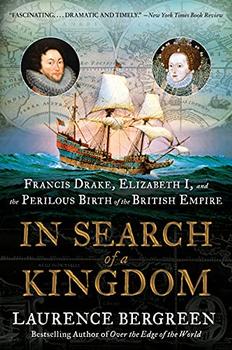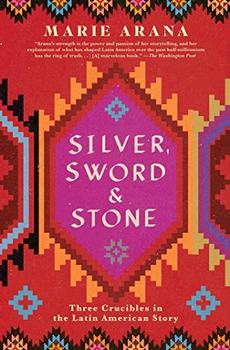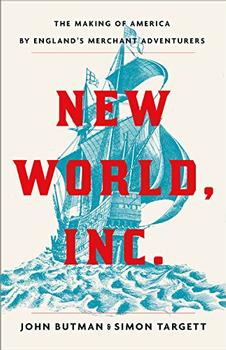Summary | Excerpt | Reviews | Beyond the book | Read-Alikes | Genres & Themes | Author Bio

Francis Drake, Elizabeth I, and the Perilous Birth of the British Empire
by Laurence BergreenThe Age of Exploration in the early modern period, lasting roughly from the 15th through 16th centuries, looms large in historical writing because it contains sources of continual fascination — swashbuckling explorers, "new" worlds discovered and the lure of the exotic. The traveler's tale is inherently an adventure, and few in the early modern world were more adventurous than Sir Francis Drake (circa 1540-1596), whose naval accomplishments paved the way for British colonialism — eventually leading to an empire upon which the sun never set.
Laurence Bergreen's In Search of a Kingdom ably captures the excitement of Drake's exploits, and also anchors them in the wider context of western history. This two-part story shows Drake's evolution from pirate to patriot while demonstrating that at the time, British supremacy seemed like an unlikely outcome of the Elizabethan Age.
The book opens by taking the reader through the drama of Henry VIII's reign and Elizabeth's convoluted path to the throne 11 years later. At times, Bergreen oversimplifies slightly, but his fast pace prevents the reader from getting bogged down in the succession battles, court intrigue and religious strife that defined Henry's marriages and the decades following his death in 1547.
The author also introduces Drake, a commoner, pirate and erstwhile slave trader, who experienced the brutality that defined colonialism in the Americas firsthand after he was captured by the Spanish during a piracy expedition. By the mid-1570s, Drake was an accomplished raider of Spanish wealth in the New World, and Elizabeth was nearly two decades into her reign — and in constant conflict with the mighty Spanish Empire. It's at this point that their stories connect.
The book then settles into the account of Drake's circumnavigation from 1577-1580, secretly planned by Elizabeth, who wanted the riches that Drake so adeptly stole from the Spanish as well as knowledge of how English mariners could reach far-flung places full of gold, silver and spices. Yet she had to tread carefully, since Spain under Phillip II was much more powerful than her unstable island kingdom — ruled as it was by a woman, and an unmarried one at that — and the Spanish were already angry about English piracy in the Atlantic.
The circumnavigation itself is reminiscent of Homer's Odyssey, complete with fantastical landscapes, dangerous shipwrecks, mutinous melodrama and years spent away from the known world. All along the coast of South America, Drake and his men plundered vast amounts of Spanish gold, silver and trading goods, escaping skillfully each time. Drake navigated his small fleet through the treacherous Strait of Magellan at the tip of South America and continued raiding and exploring all the way to the coast of what is now Oregon.
The execution of a mutinous sailor and adoration from the Miwok people on the western coast of North America are among the trip's many notable moments. But while Bergreen's extensive use of primary source accounts from those on the voyage provides eye-opening details, these sources also present a very lopsided view of the lands and peoples encountered along the way. The stories of Drake being treated as a god by Miwok people, who are portrayed as desperate and simple by the English sailors who wrote about them, could have used some analysis for inherent biases to at least get the reader thinking critically about them. Instead, this section truly reads like Homeric fantasy.
This in no way diminishes Drake's accomplishments, since unlike his predecessor, Ferdinand Magellan, he survived sailing across the entire Pacific Ocean and made it back to his home country. He also brought an incredible amount of treasure with him — enough to replenish English royal coffers to such an extent that Elizabeth decreed all accounts of the voyage to be state secrets so no one would know how much he stole. Drake was knighted and given a fine estate, becoming a national celebrity. His success meant that England was stronger and Spain weaker than when he embarked, and it changed the course of history.
At this point, the book pivots from an adventure tale to a war for empire — almost as if the Aeneid had followed the Odyssey instead of the other way around. Drake goes from pirate to patriot, leading the English Navy against the Spanish Armada and completely eviscerating it. Uncomfortable among courtiers and the aristocracy, the newly knighted Drake was only too happy to be back fighting at sea, destroying the Spanish fleet and announcing English naval supremacy.
The star of the book's second half, however, is the enigmatic Elizabeth I. In her many policy changes and shifting directions, Elizabeth often seemed mercurial — for example, when she roused her army with speeches only to disband them the very next day, as Bergreen recounts. But it was by keeping the factions around her off-balance that she prevented any one of them from gaining power over her and usurping the throne. With her navy triumphant over its greatest rival and her reign finally secure, Elizabeth set England on the course toward empire. This was due in large part to Drake's successes, but it was Elizabeth who saw how to evolve these victories beyond theft on the high seas. Drake "became a bystander in this new world he had helped to open," Bergreen explains.
Drake returned to piracy and ultimately died of dysentery off the coast of Panama, but his legacy was well secured. His seafaring knowledge opened up new possibilities for England and the treasure he brought back allowed Elizabeth to invest in the precursor to the East India Company, all of which fueled England's dreams of empire and reconfigured the standing of the players on the world stage. Bergreen rightly credits Drake and his relationship with the brilliant Elizabeth for the role he played in this drama. Sometimes the author is a little too effusive in his praise — for example, he dismisses every sailor who criticized Drake as a jealous malcontent rather than considering if a money-hungry pirate was perhaps difficult to work with. A more nuanced view of his sources would have improved his analysis overall.
But these are minor blemishes in an adventure for the ages that had repercussions well into modern times. The unlikely start of the British Empire, with its roots in daring piracy and loyalty to the throne, deserves the attention of today's readers, and In Search of a Kingdom is an excellent, accessible way to understand that history.
![]() This review was originally published in The BookBrowse Review in April 2021, and has been updated for the
April 2022 edition.
Click here to go to this issue.
This review was originally published in The BookBrowse Review in April 2021, and has been updated for the
April 2022 edition.
Click here to go to this issue.

If you liked In Search of a Kingdom, try these:

by Marie Arana
Published 2020
Against the background of a thousand years of vivid history, acclaimed writer Marie Arana tells the timely and timeless stories of three contemporary Latin Americans whose lives represent three driving forces that have shaped the character of the region: exploitation (silver), violence (sword), and religion (stone).

by John Butman, Simon Targett
Published 2018
Three generations of English merchant adventurers--not the Pilgrims, as we have so long believed--were the earliest founders of America. Profit-not piety-was their primary motive.
Your guide toexceptional books
BookBrowse seeks out and recommends the best in contemporary fiction and nonfiction—books that not only engage and entertain but also deepen our understanding of ourselves and the world around us.